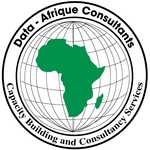|
|
Gender Mainstreaming In Agriculture and Rural Development Training
USD 2,950 |
Venue: Nairobi
Agriculture is central to the livelihoods of the rural poor and in the attainment of suitable development goals; gender equality further plays a crucial role in the achievement of these goals. However, gender differences arising from the socially constructed relationships between men and women affect the distribution of resources between them and cause many disparities in development. Consequently, gender issues must be addressed because agriculture can be the engine of growth that is necessary to reduce food insecurity and rural poverty. This training course is therefore intended to help participants address gender issues and integrate gender-responsive actions in the design and implementation of agricultural projects and rural development programs.
Course Objectives
By the end of this course the participants will be able to:
- Gain basic skills in gender mainstreaming.
- Understand the place of gender in rural development.
- Seek to assist in advancing gender equality in agriculture and rural development sector
- Understand the gender issues and needs in the agriculture sector.
- Acquire skills on mainstreaming gender in the agriculture sector.
- Appreciate the need for gender-sensitive monitoring and evaluation in agriculture and food security.
Duration
5 days
Who Should Attend
This course is intended for various actors in Agriculture Extension (Agricultural extension officers, senior agricultural officials and policy makers) working with communities, in governments, funding agencies, Research organizations and non-government organizations among others for Agriculture support activities and other Development programmes.
Course Conttent
Module 1: Introduction
- Basic gender concepts
- Overview of gender mainstreaming
- Impacts of gender mainstreaming
- Gender mainstreaming system
- Enabling environment for GMS
- GMS structures and functions
Module 2: Gender and Rural Development
- Gender, society, and culture
- Gender role in building sustainable livelihoods
- Gender dimensions of rural poverty
- Gender and rural community development
- Gender, social groups, and participation
Module 3: Gender and agriculture livelihoods
- Agriculture and rural development
- Gender and food security
- Gender and rural finance
- Gender in rural infrastructure for agricultural livelihoods
- Gender mainstreaming in health and nutrition
- Mainstreaming gender in urban agriculture and food Security
- Mainstreaming gender in climate change adaptation planning for the agriculture sector
Module 4: Gender issues and needs in the agriculture sector
- Equal access to natural resources and services
- Gender differences in roles and activities
- Gender and agricultural extension, research and technology
- Gender, agricultural diversity and the commercialization of agriculture
- Empowerment and access to decision making
Module 5: Mainstreaming gender in the agriculture policy sector
- Issues of Gender Inequality in the policy area
- Gender equality policy objectives
- Relevance of gender in policy area
- Policy process and implications
- Constraints in development of policies
- Gender advocacy for food and nutrition security
Module 6: Gender-sensitive monitoring and evaluation in agriculture and food security
- Introduction to M&E in Gender and food security
- Gender issues in monitoring evaluation
- Prioritizing gender in M&E plans
- Exploring gender in M&E plans in nutrition
- Selecting indicators to measure gender-related outputs and outcomes
- Impact of food distribution on genders’ vulnerability
- Case studies
General Notes
- This course is delivered by our seasoned trainers who have vast experience as expert professionals in the respective fields of practice. The course is taught through a mix of practical activities, theory, group works and case studies.
- Training manuals and additional reference materials are provided to the participants.
- Upon successful completion of this course, participants will be issued with a certificate.
| Nairobi | Dec 09 - 13 Dec, 2024 |
Class Session: 08:00:am - 04:00:am
| USD 2,950.00 | (Kigali) |
| USD 4,500.00 | (Dubai) |
| USD 1,500.00 | (Nairobi) |
| USD 1,500.00 | (Mombasa) |
DUNCAN KARIUKI +254723360025
Tags: |
Gender Mainstreaming Agriculture Rural Development governments funding agencies Research organizations and non-government organizations |



